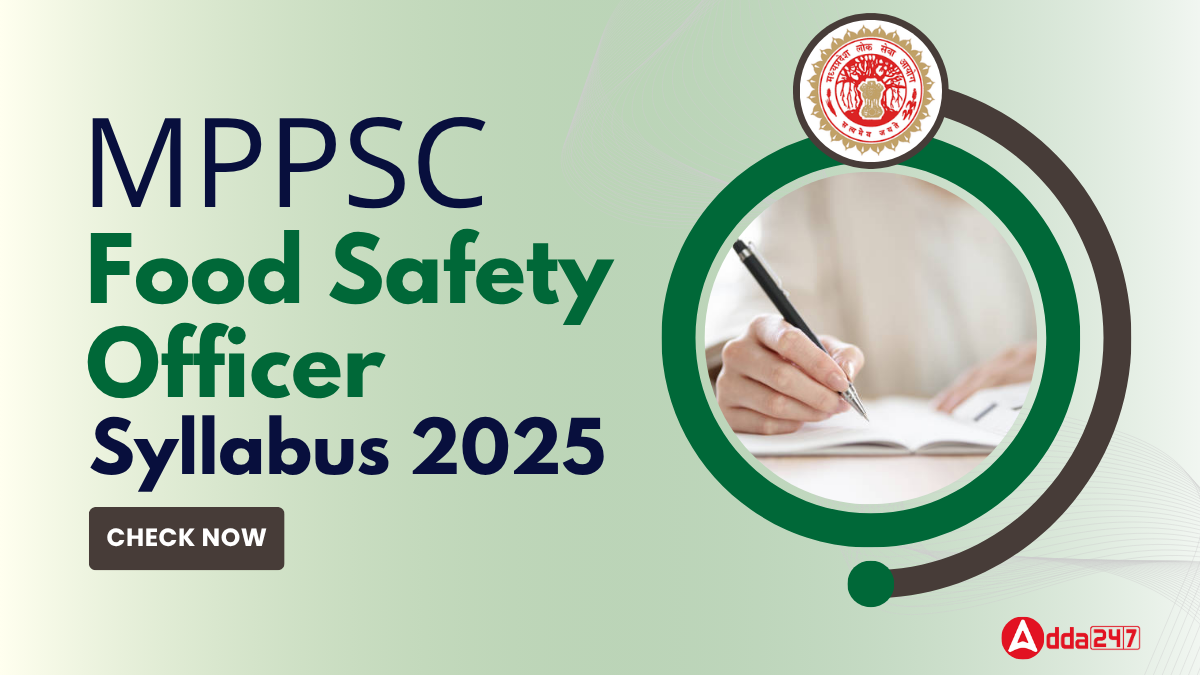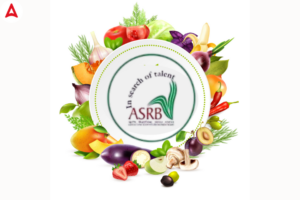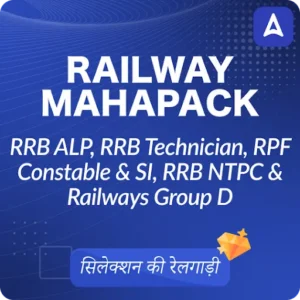The MPPSC Food Safety Officer Exam is is fast approaching, and the commission has officially issued the admit card for the test scheduled for 14 December 2025. With a very few days left before the exam, this is the final stretch for candidates aiming to secure one of the 67 FSO posts. At this stage, having a firm grip on the syllabus and exam pattern and knowing which topics to revise becomes crucial for scoring well. The MP FSO exam tests a blend of subject expertise, analytical skills, and awareness of Madhya Pradesh’s socio-economic framework. To help you revise more strategically, here’s the updated syllabus and exam structure you need to focus on for the upcoming MPPSC FSO Exam.
MP FSO Syllabus 2025
The MPPSC FSO Syllabus 2025 covers two main areas: General Studies (Part A) and Food Science & Technology (Part B). Part A evaluates your understanding of Madhya Pradesh’s history, politics, economy, culture, and current affairs. Part B checks your depth in food chemistry, microbiology, nutrition, preservation methods, regulations, and agriculture-based systems. Since the exam is fast approaching, candidates are advised to follow the unit-wise syllabus closely and revise each theme with conceptual clarity.
Also Check, MP FSO Admit Card 2025
MP FSO Exam Pattern 2025
The MP FSO Exam is structured into two distinct phases: an Optical Mark Recognition (OMR) test followed by a personal interview. The written test consists of two sections, and candidates must secure at least 40% marks in Section A (General Studies) and Section B (Subject-related) separately to qualify. The final merit list is prepared by combining scores from both sections, ensuring a fair evaluation of technical expertise and analytical skills before progressing to the detailed and rigorous interview process.
MP FSO Written Examination
The MP FSO 2025 exam will be held in an offline OMR-based format. It consists of 150 objective-type questions, divided into two sections – Part A includes 50 questions carrying 100 marks, while Part B contains 100 questions for 300 marks. The paper assesses candidates across multiple areas, including General Awareness, Food Science & Technology, and Reasoning.
| MP FSO Exam Pattern 2025 | |||||
| Part | No. of Questions | Marks Per Correct Answer | Negative Marking (per wrong answer) | Total Marks | Time |
| Part A | 50 | 3 | -1 | 150 | 3 Hours |
| Part B | 100 | 3 | -1 | 300 | |
| Total | 150 | 3 | -1 | 450 | |
MP FSO Interview
The MP FSO Interview carries a weightage of 50 marks, without any declaration of the minimum marks required to qualify, and follows a rigorous document verification process. After the written exam (worth 450 marks), a fixed deadline is set for submitting eligibility documents. Only candidates whose documents pass detailed scrutiny are invited for the interview, ensuring that all submissions are timely and meet the required standards.
| Stage | Marks |
| Written Exam | 450 |
| Interview | 50 |
| Total | 500 |
MPPSC FSO Syllabus
The Madhya Pradesh Public Service Commission (MPPSC) has released the detailed syllabus for the Food Safety Officer (FSO) Examination 2025. The MP FSO syllabus is divided into multiple units, each covering specific topics essential for the role. Below is a structured table summarizing the syllabus:
Section A: General Studies
| Unit | Topics | Subtopics |
|---|---|---|
| Unit 1: History of Madhya Pradesh | Ancient, Medieval, and Modern History of Madhya Pradesh | – Prehistoric, Protohistoric, and Historic Periods – Freedom Movement in Madhya Pradesh – Tribal History and Literature of Madhya Pradesh |
| Unit 2: Geography of Madhya Pradesh | Geographical and Physical Features | – Location, Rivers, Mountains, Climate, Soils, Forest Types and Produce – Agriculture: Major Crops, Irrigation Sources, Projects – Power Projects, Minerals, and Energy Sources – Population, Transportation, and Industries |
| Unit 3: Politics and Economy of Madhya Pradesh |
Political Framework of Madhya Pradesh | – Governor, Chief Minister, Cabinet, Vidhan Sabha, High Court, Lokayukta. – State Secretariat, Chief Secretary, Divisional Commissioner, Police Commissioner. – District Administration, Urban Administration, Local Self Government, Panchayati Raj Institutions. – State Election Commission, State Information Commission, State Scheduled Castes Commission, State Scheduled Tribes Commission, State Backwards Classes Commission, State Commission for Women. – Schedule Caste and Schedule Tribe Prevention of Atrocities Act, 1989; Panchayats Extension to – Schedule Areas (PESA) Act, 1996; Environment Protection Act, 1986; Madhya Pradesh Govansh Vadh Pratishedh Adhiniyam, 2004. |
| Economic Overview of Madhya Pradesh | – Overview of the Economy of Madhya Pradesh. – Status of Agriculture and Rural Development in Madhya Pradesh. – Development of Industrial and Infrastructural Framework in Madhya Pradesh. – Status of Education, Health, and Skill Development in Madhya Pradesh. – Status of Madhya Pradesh in Sustainable Development Goals, Ease of Doing Business and Multidimensional Poverty Index. |
|
| Unit 4: Tribes, Heritage, Folk Literature and Folk Culture of Madhya Pradesh | Tribal Distribution and Welfare | – Major Tribes, PVTGs, Welfare Programs – Tribal Culture: Arts, Festivals, Languages, and Literature – Tribal Contributions to Freedom Struggle – Folk Culture and Folk Literature |
| Unit 5: Current Events of International, National and Madhya Pradesh and ICT | Current Affairs and Technology | – International, National, and State Current Events – Current Events, Prominent Personalities, Important Places and Major Public Welfare Schemes of Madhya Pradesh. – ICT, AI, Machine Learning, Data Science, IoT, and Cloud Computingg |
Section B: Food Science and Technology
| Unit | Topics | Subtopics |
| Unit-I | Introduction to Basic Food Science | – History of food & its preservation. – Traditional Food and their importance. Role of Food fortification. Aspects of eat right challenges in India. Tribal foods of Madhya Pradesh. – Food Constituents – Carbohydrate, Proteins, Fat, Vitamins, Minerals, Enzymes: Chemical structure, classification and functions. – Metabolic Pathway; Digestion and Absorption; Carbohydrates; Lipids; Proteins, Vitamins, Fibres and Minerals. – Properties of Food: Physical, Acid, Base & Buffer, Chemical, Colloids. |
| Unit-II | Food Microbiology | – General characteristics of micro-organism; Classification, Morphology, Physiology, Growth, Nutrition and Reproduction; Microbial growth. – Food Poisoning and Foodborne Disease; Food Toxins. Rapid methods in the detection of micro-organisms. – Food Fermentation; Fermented Food Products and Beverages. – Food spoilage of specific food groups (Milk and Milk products, Meat, Poultry, Fish, Cereal, Pulses, Oil, Fruits, Vegetables, Canned Food Products). – Microbial techniques; Types of micro-organism, their morphology, culture and media preparation, SPC, TPC. |
| Unit-III | Food and Nutrition | – Food and Nutrition; its functions, classification and sources. – Balance diet; Recommended Dietary Allowances (RDA), Basal energy metabolism; (BV, NPU, BMK, PER, BMI) calculations. – Techniques for assessment of Human Nutritional status, causes and preventions of Malnutrition. – Programme of Nutrition and Health in India (MDMP, ICDS, National Food Security Mission). – Macro and micro nutrients deficiency diseases and their prevention. |
| Unit-IV | Food Preservation, Packaging and Storage | – Food preservation, Principles and its methods. – Thermal and Non-Thermal Food Preservation Technology. – Food Packaging: Concept of food packaging. Type of packaging, Packaging Laws and Regulations, Evaluation of food packaging materials, Packaged commodities rules. – Novel Technologies in Food Packaging and Recent Developments. – Food Storage; Storage structures, practices, environment and its interaction with stored product. |
| Unit-V | Indian Farming System | – Status of Agriculture in India, Types of traditional and modern farming systems. – Components of Farming System, Farming-based Livelihood Systems, Crops and cropping systems. – Livestock: Dairy, Piggery, Goats, Poultry, Duckery systems. – Horticultural Crops, Agro-forestry systems, Aquaculture, Duck/Poultry-cum-Fish, Dairy-cum-Fish, Piggery-cum-Fish. Small, medium and large enterprises including value chains and secondary enterprises as livelihood components for farmers. – Commercial farming-based livelihood-models by NABARD, ICAR (State Agricultural Universities and KVKs). – Schemes and Programs by Central and State Government, Public and Private Organizations involved in promotion of farming-based livelihood opportunities. |
| Unit-VI | Food Safety, Quality Control, Hygiene & Standard | – Food Safety; Definition, Scope, Importance, Standard, and Factors affecting. – Hazards and Risks; Types of hazards – Physical, Chemical, Biological hazards. Management of hazards. – Hygiene and Sanitation in Food Service Establishments; Introduction, Sources of contamination and their control. Waste Disposal. Pest and Rodent Control, Personnel Hygiene. – Basic concepts of Food Safety Management; PRPs; GHPs, GMPs, SSOPs. HACCP, ISO Series, TQM. – FSMS 22000, ISO 22000:2005, Global Food Safety Management systems. |
| Unit-VII | Integrated Agriculture Production Technology | – Salient feature of Agriculture and livestock of Madhya Pradesh. – Crops production; Spices; Animal Husbandry; Agro forestry Systems, Concept of Sustainability. – Post Harvest Management, Energy Management, Water Harvesting & Management, Soil Health, Crop Management, Pest Management. |
| Unit-VIII | Animal Product Processing | – Composition of Meat, Types of Meat, Slaughtering, Tenderization and Curing. – Fish and Poultry processing. Physical, Chemical, Nutritional and Functional characteristics of Egg. – Composition and properties of Milk and their different processed products (Concentrated and dried, Fermented, Cream, Ice Cream, Butter, Cheese). – Milk adulterants and its detection. |
| Unit-IX | Food Processing Technology | – Use of Non-thermal technologies (Micro Filtration, High Pressure processing, Ultra Filtration, Reverse Osmosis), Ultra-high voltage electric fields, Cold Plasma. – Nutraceuticals and functional foods, Junk foods. – Method of food preservation; Thermal Processing, Pasteurization, Concentration, Canning, Dehydration, Freezing, Fermentation, Irradiation and Food additives. – Aseptic preservation; Hurdle Technology, Hydrostatic Pressure Technology, Microwave Processing. – Innovative Thermal Technologies (Ohmic heating, Dielectric heating, Infrared and Induction heating) in food processing. |
| Unit-X | Food Laws, Regulations, Certification and Development Schemes | – National and International Food Laws and Standards, Food Regulatory Regime, FSSAI, Codex Alimentarius Commission, Global Scenario CAC. – Food Safety and Standards Act. FSSAI Rules-2006; Food Adulteration, Misbranding, Common Adulterants in Foods, Duties and Responsibilities of Food Safety Authorities. – Certification: Procedure, Auditing, Certifying and Accrediting Bodies. Bureau of Indian Standards (BIS), AGMARK, Weights and Measures Act, Principle, Implementation, Documentation, Types of records. – Organic Food and Genetically Modified Food.- Food institutes: CFTRI, NIFTEM, ICAR, ICMR, DFRL. |
Preparation Tips for MP FSO 2025
- Understand the MP FSO Syllabus and Exam Pattern: Familiarize yourself with each topic and allocate preparation time accordingly.
- Create a Study Plan: Develop a realistic schedule, focusing more on weaker areas.
- Use Reliable Study Material: Choose books and resources specific to food safety and related subjects.
- Practice Mock Tests: Regularly attempt practice tests to gauge your preparation and improve time management.
- Stay Updated: Follow current affairs and updates related to food safety standards and regulations.
| Also check | |
| MP FSO Eligibility Criteria | MP FSO selection process |
| MP Food Safety Officer Salary | MPPSC Food Safety Officer Notification 2025 |
| MP Food Safety Officer Previous Year Question Paper | |




 OPSC OCS Syllabus and Exam Pattern 2026,...
OPSC OCS Syllabus and Exam Pattern 2026,...
 ASRB NET Vegetable Science Syllabus 2026...
ASRB NET Vegetable Science Syllabus 2026...
 RRB Section Controller Syllabus And Exam...
RRB Section Controller Syllabus And Exam...




 Adda247 Job portal has complete information about all Sarkari Jobs and Naukri Alerts, its latest recruitment notifications, from all state and national level jobs and their updates.
Adda247 Job portal has complete information about all Sarkari Jobs and Naukri Alerts, its latest recruitment notifications, from all state and national level jobs and their updates.



